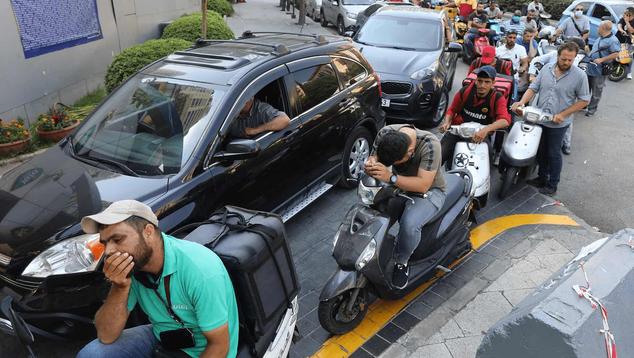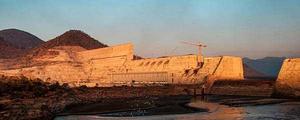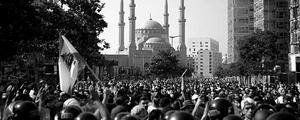Story Highlights
- A record-high 76% of Lebanese are struggling to get by
- 45% of Lebanese lacked money for food in the last year
- 87% said their standard of living was worsening
WASHINGTON, D.C. -- Lebanon's caretaker Prime Minister Hassan Diab warned Tuesday that his country is "a few days away from the social explosion" as it spirals deeper into what the World Bank says could be one of most severe economic crises in modern history in terms of how it has affected people's living standards.
Beset on all sides by crisis since late 2019 with widespread unemployment, high levels of debt and a collapsing currency -- amid a global pandemic -- record numbers of Lebanese are now struggling to make ends meet. In late 2020, more than three in four Lebanese said it was difficult or very difficult to get by on their household income.
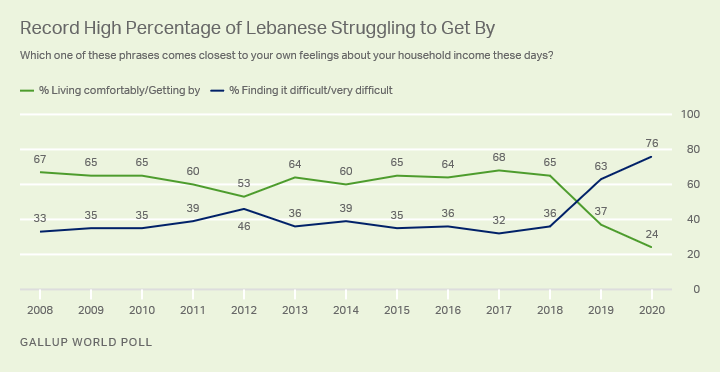
Line graph. Lebanese perceptions of their household incomes. In 2020, 76% of the Lebanese public said it was difficult or very difficult to get by, up from 63% in 2019.
The current situation is a far cry from where Lebanese stood financially before the country plunged into an economic crisis in October 2019 following government efforts to pass a tax on the "WhatsApp" application. After massive protests against the government, foreign currency flowed out of the country, exacerbating existing economic issues and deepening the country's economic woes.
Nearly Half of Lebanese Struggle to Afford Food
Since then, the country's currency has lost more than 90% of its value and continues to do so, aggravated by skyrocketing prices for food, medicine, fuel and other basic goods. The percentage of Lebanese people who said they could not afford food at some point in the last year tripled between 2019 and 2020, jumping from 15% to 45%. The percentage struggling to afford shelter more than doubled in the same period, rising from 7% to 18%.
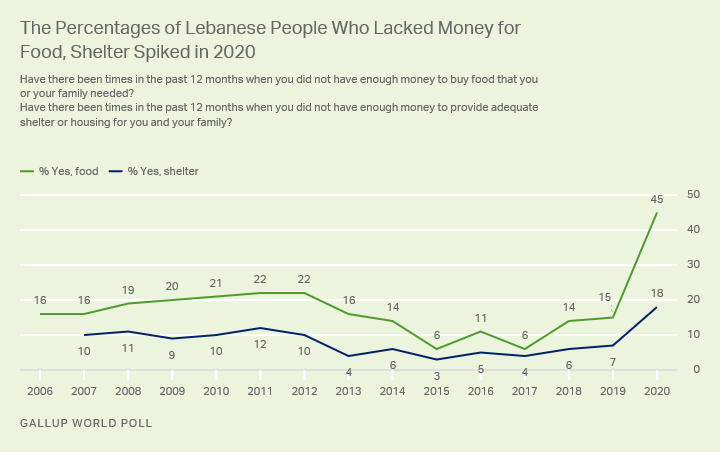
Line graph. The percentages of the Lebanese public who have lacked money for food or shelter in the last 12 months. In 2020, 45% of Lebanese reported having lacked money for food and 18% said they lacked money for shelter.
Satisfaction With Standard of Living at Record Low
Before the crisis, more than half of the people in Lebanon (57%) were satisfied with their standard of living. Today's percentage is less than half that, with a quarter of the Lebanese public satisfied, the lowest point in Gallup's trend for the country.
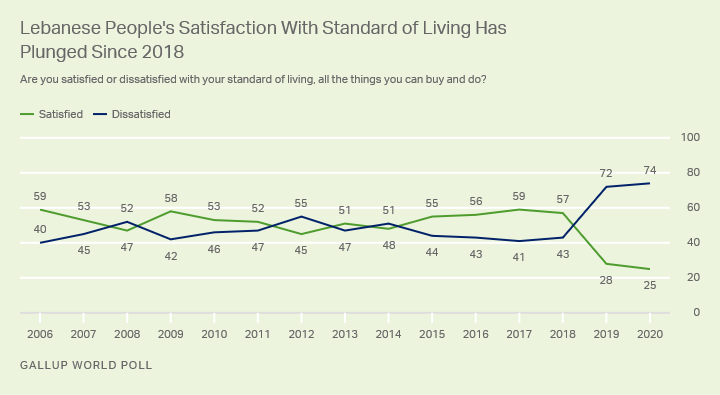
Line graph. Lebanese' satisfaction with their standards of living. In 2020, 74% of the Lebanese public was dissatisfied with their standard of living, 25% satisfied.
Lebanese are even more pessimistic about their economic future. Just 6% in late 2020 saw their living standards getting better, while a record 87% saw them getting worse.
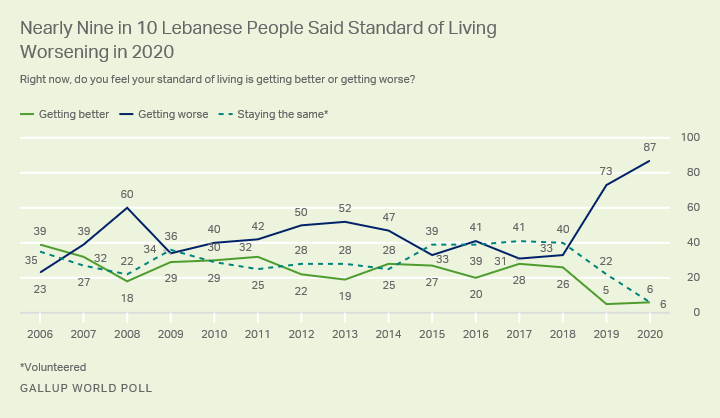
Line graph. Lebanese perception of the trajectory of their standards of living. In 2020, 87% of Lebanese said their living standards were worsening, compared with 6% who said they were improving.
Bottom Line
Lebanon's crushing economic issues have fueled widespread unrest in the country. Anger over these issues among the Lebanese public resulted in widespread protests, which continue to this day -- however sporadic they might be for now. Concurrently, the country's currency continues to plunge, the Central Bank is gradually curtailing the subsidies of staple food items and fuel, prices have gone up, and there are increasing shortages of goods, medicines and gasoline.
The country's political difficulties have only exacerbated these economic woes. Lebanon currently lacks the government stability required to implement any reforms or policies aimed at improving the economic situation. And, continued political squabbling has repeatedly prevented the formation of a governing cabinet during a time of economic crisis and global pandemic.
The crisis confronting Lebanon would be difficult for even a strong government to confront. However, the current political turmoil, lack of consensus among political leaders and economic conditions that are worsening by the day may prove difficult to overcome.
To stay up to date with the latest Gallup News insights and updates, follow us on Twitter.
For complete methodology and specific survey dates, please review Gallup's Country Data Set details.
Learn more about how the Gallup World Poll works.
